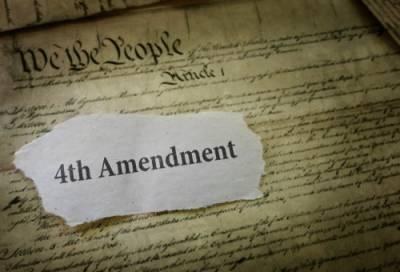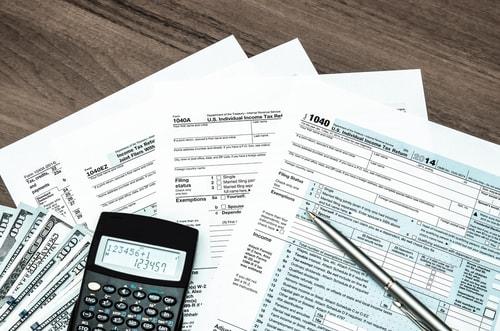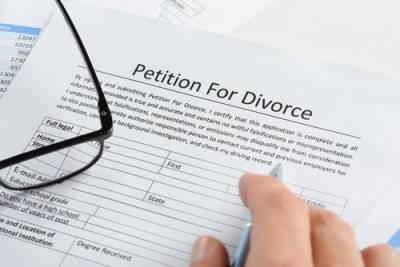Recent Blog Posts
When Is Spousal Maintenance Appropriate in a Texas Divorce?
 There are a variety of financial issues that can play a role in a divorce case. When one spouse believes they will be at a financial disadvantage after the end of their marriage, they may ask for ongoing support from the other spouse. In Texas, spousal maintenance (sometimes called "alimony") consists of financial support paid by one spouse to the other spouse after divorce. However, not every divorcing couple will have to deal with spousal support. This form of support will only be appropriate in certain situations, and there are a number of factors that will affect the decisions about whether maintenance should be paid, how long it will last, and the amount that one spouse will pay to the other.
There are a variety of financial issues that can play a role in a divorce case. When one spouse believes they will be at a financial disadvantage after the end of their marriage, they may ask for ongoing support from the other spouse. In Texas, spousal maintenance (sometimes called "alimony") consists of financial support paid by one spouse to the other spouse after divorce. However, not every divorcing couple will have to deal with spousal support. This form of support will only be appropriate in certain situations, and there are a number of factors that will affect the decisions about whether maintenance should be paid, how long it will last, and the amount that one spouse will pay to the other.
Situations Where Spousal Support May Be Awarded
A family court judge may award spousal support in the following situations:
- One spouse cannot meet their own financial needs due to a physical or mental disability.
What Constitutes Murder in Denton County and What Are the Penalties and Defenses?
 As is valid in the United States and any civilized society, murder is among the most severe offenses one can be accused of and charged with committing. Yet, if you are convicted of murder in Texas, you may even find yourself on death row.
As is valid in the United States and any civilized society, murder is among the most severe offenses one can be accused of and charged with committing. Yet, if you are convicted of murder in Texas, you may even find yourself on death row.
According to the Death Penalty Information Center, Texas has carried out more executions than any other state since 1976. Furthermore, Denton County juries have condemned seven individuals to death, six of which have been successfully carried out. In Denton County, the last person to be executed was in 2011. Simply put, Texas takes murder exceptionally seriously. Therefore, if you have been charged with murder, it is strongly advised that you seek counsel immediately, as your life may very well be on the line.
How Are Murder and Capital Murder Defined in Texas?
In Texas, there is murder and capital murder. Firstly, how is murder defined? Murder is when someone deliberately takes another person’s life. You may also be charged with murder if you engage in hazardous conduct intending to injure a person critically and kill them. Other circumstances where someone can be accused of murder is if they are committing or attempting to commit a felony and then decide to flee the scene, killing someone in the process. Such an act qualifies for murder in Texas.
You Have Been Charged with Sexual Assault in Denton County; What Should You Do?
 In Texas, sexual assault is a grave offense. Furthermore, to be convicted of such an act can be altogether life-shattering. The public view sexual assault as a crime where the accused must be swiftly and aggressively brought to justice. It is the type of crime where, even if the accused is found not guilty, their life may still be ruined for having been associated with such a crime. If you were charged with sexual assault, hiring a criminal defense attorney to defend your rights is imperative.
In Texas, sexual assault is a grave offense. Furthermore, to be convicted of such an act can be altogether life-shattering. The public view sexual assault as a crime where the accused must be swiftly and aggressively brought to justice. It is the type of crime where, even if the accused is found not guilty, their life may still be ruined for having been associated with such a crime. If you were charged with sexual assault, hiring a criminal defense attorney to defend your rights is imperative.
What Constitutes Sexual Assault?
According to RAINN, every 68 seconds, an American is sexually assaulted. An individual can be charged with sexual assault when accused of sexual activity with another person without that person's consent. There are many variables at play in the case of sexual assault. These variables can have a significant impact on the severity of the charge. For example, some variables include the alleged victim's age and whether the accused allegedly used or threatened to use force.
What Are the Penalties for Assault or Robbery in Texas?
 Criminal charges should always be taken seriously. Even a "minor" offense can result in multiple types of penalties, and it may leave a person with a criminal record that will follow them for years or even the rest of their life. However, certain types of offenses are especially serious, and a conviction could result in significant jail time, as well as massive fines and permanent damage to a person's reputation.
Criminal charges should always be taken seriously. Even a "minor" offense can result in multiple types of penalties, and it may leave a person with a criminal record that will follow them for years or even the rest of their life. However, certain types of offenses are especially serious, and a conviction could result in significant jail time, as well as massive fines and permanent damage to a person's reputation.
Violent crimes, which involve causing bodily harm to another person, are often a top priority for law enforcement, and they include assault and robbery. Anyone accused of these offenses will want to work with a criminal defense attorney to determine their best options.
Criminal Convictions for Violent Offenses Resulting in Injury
Because violent crimes involve harm to others, those who are accused of these offenses will often face felony charges, which typically carry a minimum prison sentence of one year. The different types of violent crimes that may be charged when a person injures or harms someone else include:
Understanding the Issue of Consent in Sexual Assault Cases
 There are a variety of situations where a person may be accused of committing sex crimes. One of the most common offenses that falls under this category is sexual assault. This charge may apply if a person is accused of engaging in sexual intercourse with another person without that person’s consent. However, consent is not always easy to understand, and situations may arise in which a person accused of sexual assault may have believed that consent had been given, but the alleged victim may disagree. By understanding how the laws in Texas address consent, people accused of sexual assault or other sexual offenses can determine their legal options.
There are a variety of situations where a person may be accused of committing sex crimes. One of the most common offenses that falls under this category is sexual assault. This charge may apply if a person is accused of engaging in sexual intercourse with another person without that person’s consent. However, consent is not always easy to understand, and situations may arise in which a person accused of sexual assault may have believed that consent had been given, but the alleged victim may disagree. By understanding how the laws in Texas address consent, people accused of sexual assault or other sexual offenses can determine their legal options.
When Is Sexual Activity Considered to Be Non-Consensual?
The Texas Penal Code outlines a number of different instances in which sexual activity may be considered to be without consent and constitute sexual assault. Most people would recognize that when physical force is used, this involves a clear lack of consent and constitutes sexual assault. However, other methods of compelling a person to engage in sexual intercourse may also be used, such as threats to injure the victim or someone else or other forms of coercion.
Three Strategies for Defending Against Assault Charges in Texas
 Under Texas law, assault is defined in Texas law as intentionally or recklessly causing or threatening harm to or offensive contact with another person. The terms "assault" and "battery" are often used interchangeably. In some states, the offense of "battery" refers to conduct that results in actual bodily injury, but Texas does not recognize battery as an offense separate from assault. Instead, the offense of assault encompasses most behaviors that constitute battery in other jurisdictions.
Under Texas law, assault is defined in Texas law as intentionally or recklessly causing or threatening harm to or offensive contact with another person. The terms "assault" and "battery" are often used interchangeably. In some states, the offense of "battery" refers to conduct that results in actual bodily injury, but Texas does not recognize battery as an offense separate from assault. Instead, the offense of assault encompasses most behaviors that constitute battery in other jurisdictions.
A person can be charged with assault even if they do not hurt the other person. Verbal threats, threatening gestures, or contact that is offensive, such as poking someone in the chest or shoving him or her backward, may lead to assault charges. As such, many people find themselves facing assault charges because they got into a heated argument with a family member or friend. Bar fights or altercations in public can also lead to assault charges. If you or a loved one have been charged with assault, speak with a criminal defense lawyer as soon as possible. Your lawyer can help you build a strong defense to fight the charges.
What Happens the First Time I Violate Probation?
 Whether you are on probation in lieu of jail time or are serving out the remainder of a jail sentence under community supervision, violating the terms of your probation could have severe consequences. Depending on the severity of the original crime and the actions that led to your accused probation violation, you could face community service, increased fines, or even being sent back to jail. No matter what circumstances or actions led to the violation of your probation, you should hire a criminal defense lawyer who can help you make your case to the judge.
Whether you are on probation in lieu of jail time or are serving out the remainder of a jail sentence under community supervision, violating the terms of your probation could have severe consequences. Depending on the severity of the original crime and the actions that led to your accused probation violation, you could face community service, increased fines, or even being sent back to jail. No matter what circumstances or actions led to the violation of your probation, you should hire a criminal defense lawyer who can help you make your case to the judge.
Probation Violations and Consequences
Being sentenced to probation may seem like a great alternative to spending time behind bars. The justice system recognizes the opportunity you have been given and subsequently imposes terms you must abide by to remain on probation.
There are a number of actions that could lead to a probation violation. These include:
The Fourth Amendment and the Protective Sweep Doctrine
 The Fourth Amendment to the U.S. Constitution provides protection from unreasonable searches and seizures by the government. However, it only provides protection from searches and seizures that are deemed unreasonable under the law. One type of search that is not prohibited by the Fourth Amendment is a “protective sweep.”
The Fourth Amendment to the U.S. Constitution provides protection from unreasonable searches and seizures by the government. However, it only provides protection from searches and seizures that are deemed unreasonable under the law. One type of search that is not prohibited by the Fourth Amendment is a “protective sweep.”
What Is a Protective Sweep?
Under the Fourth Amendment, the police cannot just enter a person’s home unless they have a warrant to do so. In order to obtain a warrant, law enforcement must show the court there is probable cause of criminal activity to justify that warrant.
Police are allowed to conduct a search without a warrant under the Protective Sweep Doctrine. Under this doctrine, police can conduct a search after they have arrested someone. The purpose of this search is to provide officers a way to ensure their safety, as well as anyone else on the scene, searching for anyone who may pose a threat.
Are You Being Accused of Tax Fraud?
 April 15th has come and gone, our annual reminder that we need to file our income taxes. Some people file early – usually those who are receiving refunds, while others wait until the very last day to file. Those last-minute filers often owe taxes. There are also those who file extension requests because they need more time to get their documents together. The bottom line is, however, that no matter how we feel about our tax obligation, we are legally required to pay our taxes or face serious civil and/or criminal consequences.
April 15th has come and gone, our annual reminder that we need to file our income taxes. Some people file early – usually those who are receiving refunds, while others wait until the very last day to file. Those last-minute filers often owe taxes. There are also those who file extension requests because they need more time to get their documents together. The bottom line is, however, that no matter how we feel about our tax obligation, we are legally required to pay our taxes or face serious civil and/or criminal consequences.
Tax Fraud
No matter what the type of tax fraud that is being committed, the IRS has the tools in place where taxpayers can report the fraud directly to them. The agency has different forms that taxpayers can use, depending on what type of tax fraud is being committed. These forms do not require the individual reporting the alleged fraud to identify themselves, however, the IRS does encourage people to do so. Those that do identify themselves may be asked to testify against the party they are reporting should an investigation result in criminal charges being filed. If someone has reported you for tax fraud, contact a white-collar crime attorney immediately.
Filing for a Divorce in the State of Texas
 When a couple decides to get a divorce, there are several different ways it can go. While every divorce has their own set of unique circumstances, there are certain constants in the divorce process no matter what has occurred in the couple’s marriage. One constant that anyone who has decided to divorce their spouse should adhere to is seeking out the legal advice of an experienced Texas divorce lawyer, regardless of whether it is a friendly divorce or a contentious one.
When a couple decides to get a divorce, there are several different ways it can go. While every divorce has their own set of unique circumstances, there are certain constants in the divorce process no matter what has occurred in the couple’s marriage. One constant that anyone who has decided to divorce their spouse should adhere to is seeking out the legal advice of an experienced Texas divorce lawyer, regardless of whether it is a friendly divorce or a contentious one.
Requirements
Before you are even permitted to file for a divorce in Texas, you must meet certain requirements. The primary qualification you must have is residency; Texas mandates that you have lived in the state continuously for at least six months and that at least one of the spouses must have resided in the county in which the divorce is being filed in for a minimum of 90 days. As long as this residency requirement has been met, one of the spouses can file a petition of divorce.






